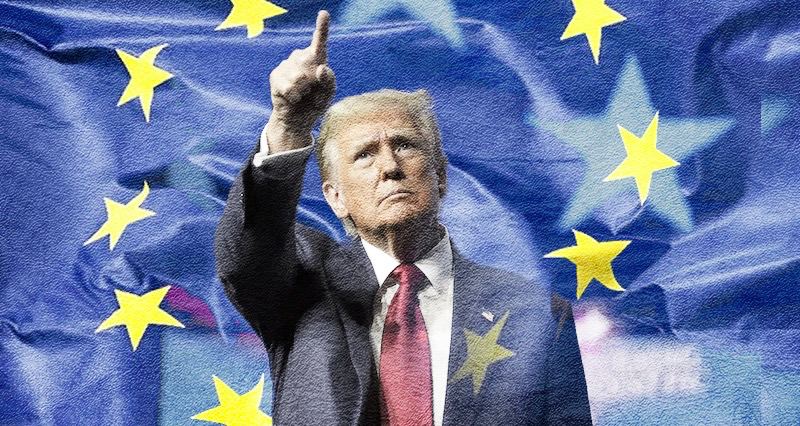By Ali Rıza Taşdelen
Donald Trump has been reelected, sparking concerns across Europe. The Atlanticist media are recalling the tensions that marked US-Europe relations from 2017 to 2021 during Trump’s first term as president.
Before the 2016 election, Trump’s rhetoric notably diverged from that of aggressive globalist neoconservatives. He advocated for collaboration with Russia in the fight against ISIS in Syria, expressed doubts about the US’s interventionist policies given its heavy debt, proposed reforms to NATO, and suggested reevaluating the Paris Climate Agreement.
That Trump withdrew from the Iran nuclear deal, relocated the US embassy to Jerusalem, and remained silent on Israel’s inhuman attacks in Gaza pit the US against the EU countries. The trade war between the two shores of the Atlantic was another important factor here.
Trump maintains this line. To these frictions, the Ukraine issue was added during Joe Biden’s presidency. For the EU, the biggest worry about Trump centers on his approach to Ukraine.
French media this week have asked mostly the “What would Trump’s election mean for Europe?” One good example is Henrik Lindell’s article on Lavie.fr, titled “Harris or Trump: what consequences for us?” Lindell notes, “Ukraine, Middle East, NATO, trade tariffs… The US election on November 5, 2024, will directly impact Europe and the Israel-Palestine conflict”.
Similarly, Amandine Hess on an article title “Why would a Trump victory worry Europe?” on euronews.com warns that Trump’s win could disrupt EU-US relations on matters ranging from trade and security to Ukraine aid.
1- Ending the war in Ukraine
Opposing the current US’s military support for Ukraine, Donald Trump has pledged to end the war “within 24 hours” upon taking office.
Trump’s vice president J.D. Vance has outlined a plan to “make Russia and Ukraine to negotiate, pushing Ukraine to concede some territories occupied by Russia and transform the country into a neutral buffer state between Russia, the EU and NATO”.
2- Cracks in NATO
During his previous term, Trump suggested that if NATO members don’t allocate at least 2% of their GDP to defense, the US might leave the alliance. Trump went further, saying that he would not apply NATO’s Article 5, which obligates members to defend any ally under attack, systematically.
3- Trade war
Trump also plans to significantly raise tariffs on all imported goods. Chinese products would face tariffs as high as 60%. All goods from Europe would be taxed an additional 10-20%.
The US is a significant trading partner for the EU. The total trade in goods has more than doubled over the past decade and reached nearly €870 billion in 2022. But now Trump’s “America First” approach emphasizes protecting US industries and jobs, bringing back companies that have offshored.
4- Support for Israel
Trump’s stance on Israel is not different from that of the Biden-Harris. Trump does not make any comments on a two-state solution, consistently supports Prime Minister Benjamin Netanyahu, and presents himself as the figure Israelis need. In the new term, he would once again find himself at odds with the EU, which has generally been critical of Israel’s actions in Gaza and Lebanon.

















Leave a Reply